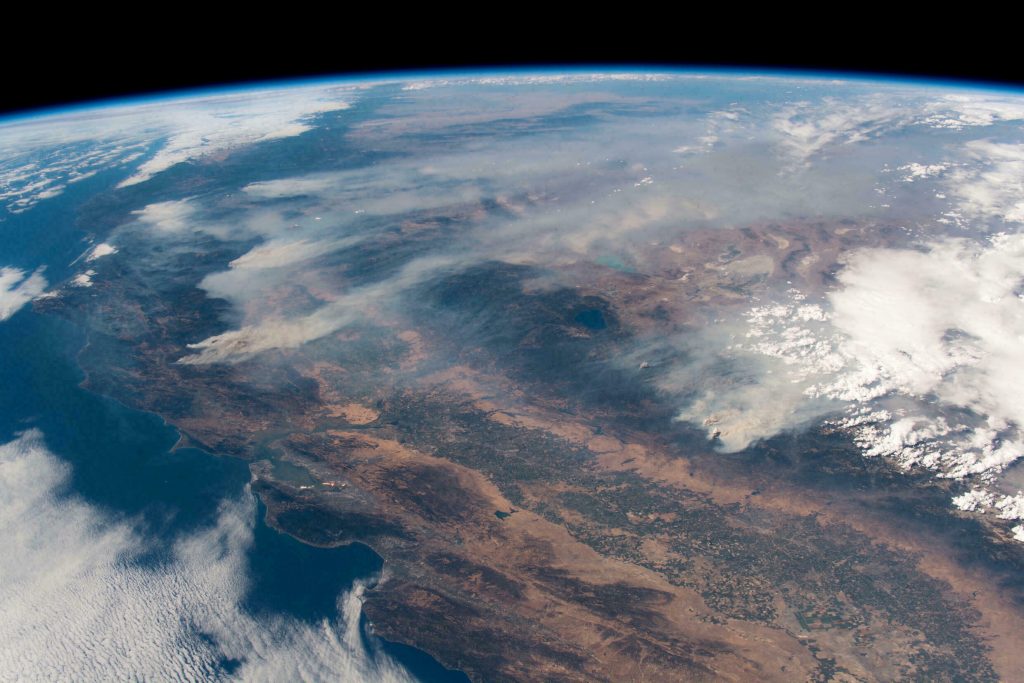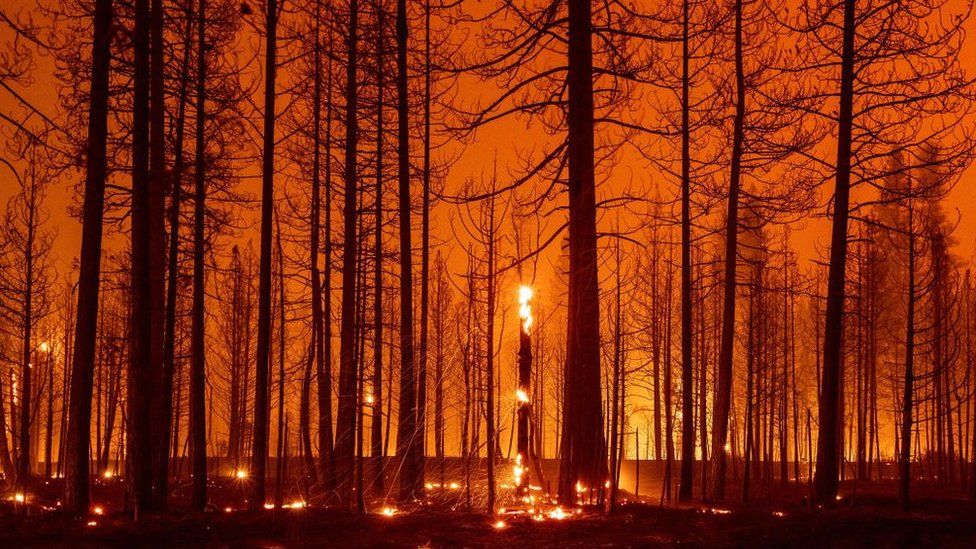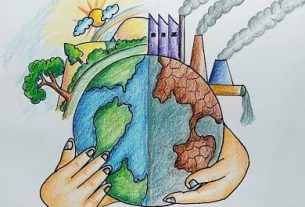Skeptics still believe that climate warming is a natural process. In the history of the Earth, there have been both cold and warm periods, so CO2 emissions have nothing to do with it. But what does science say?
During the 4.5 billion years of its history, planet Earth has experienced both warming and cooling periods. This is a fact. The temperature has been changing for many thousands of years. This process was caused by a change in the orbit in which the Earth orbits the Sun. When our planet was moving away from it, it became colder, and when it approached it, it began to warm.
When, however, in the late twentieth century, scientists began to study how the Earth’s temperature had changed over time, they found that since the 1980s, the warming had been much faster than it had been before.
A dramatic warming in the twentieth century
In 1998, American scientists from the University of Massachusetts and the University of Arizona’s Dendrochronology Laboratory published a study showing the average annual temperature on Earth over the past 1,000 years. To establish the temperature at a time when thermometers did not yet exist, that is, 500 or more years ago, they modeled the time series by relying on records in natural media – glaciers, annual tree rings and corals.
As a result, it turned out that for many centuries the deviations from the norm were insignificant, but in the twentieth century there was an unexpected jump in temperature.
The authors of a study published in 2013 in the journal Science analyzed the change in temperature on Earth in an even more ancient period – 11 thousand years ago. They came to the same conclusion: in the past century, our planet was heating up faster than in any other period of time since the end of the previous ice age.
At the same time, according to the scientists, in the last 2000 years the Earth is relative to the Sun on such an orbit, at which in former times there was a period of its natural cooling. But, the study says, this natural cooling is not being felt at the moment because of unprecedented warming caused by the emission of greenhouse gases.
What does CO2 emissions have to do with climate change?
The greenhouse effect is the natural process that makes life on Earth possible. It occurs because certain gases in our atmosphere absorb the heat radiated by the Earth and partially give it back, which is roughly what happens in a greenhouse.
Natural greenhouse gases include carbon dioxide (CO2), methane, and nitrous oxide (laughing gas). For thousands of years, nature has optimally regulated the content of these gases in the atmosphere. This changed when humans began burning fossil fuels to generate energy, resulting in a massive increase in CO2 emissions. As a result of this, and other human activities, the natural balance in the atmosphere was disturbed: the Earth began to heat up faster and faster.
According to the report “The State of the Global Climate 2020” of the UN World Meteorological Organization, the average annual temperature last year was 1.2 degrees Celsius higher than in the pre-industrial period, that is, in the time interval from 1850 to 1900, when fossil fuels were not yet massively used as energy sources. As the report’s authors point out, the human-induced increase in greenhouse gas emissions is “one of the most important causes of climate change.

In 2001, the Intergovernmental Panel on Climate Change (IPCC) concluded that for thousands of years in the pre-industrial period, the concentration of CO2 in the atmosphere was 280 parts per million (ppm). By 1999, it had risen to 367 ppm, according to the IPCC.
The IPCC was created in 1988 as a UN body, with representatives from 195 countries assessing the scientific evidence on climate change. The IPCC also believes that the growth of CO2 in the atmosphere is a consequence of human emissions, three-quarters of which are the results of burning fossil fuels, and the rest is caused by changes in land use.
In May 2021, the average concentration of CO2 in the Earth’s atmosphere was 415 ppm. The last time such a high concentration of carbon dioxide was in Earth’s atmosphere was several million years ago – when modern humans did not yet exist, and global ocean levels were on average 30 meters higher than they are now.
Benjamin Cook, who studies climate at NASA’s Robert Goddard Institute for Space Studies, said that at the end of the last century, when scientists began looking for an explanation for global warming, they began to study various factors – such as greenhouse gases, solar energy, circulation in the oceans and volcanic activity.
How unanimous are the scientists?
According to Cook, the scientific community today is as convinced of the man-made nature of climate change as it is of the theory of gravity. “There are some uncertainties and nuances in climate science that can be argued about,” he says, “but one thing almost all scientists now agree on is that warming is caused by the burning of fossil fuels.
An analysis of 11,602 scientific articles on climate change published in the first seven months of 2019 found that 100 percent of the scientists who wrote them agree on the anthropogenic nature of global warming. This analysis was conducted by James Lawrence Powell, a prominent American geologist and author of 11 books on climate change.
There is no alternative?
“If an alternative theory emerged that explained climate change other than greenhouse gas emissions and was proven by scientific research, it would be a real breakthrough,” says Benjamin Cook. – It would be work worthy of the Nobel Prize. But so far, nothing has been heard of such a study.
The Intergovernmental Panel on Climate Change is also convinced that global warming is man-made. Back in 1995, the IPCC stated that “the available evidence suggests with a high degree of certainty that humans have a measurable influence on the global climate.
“The scientific approach requires collecting data, doing research, doing calculations,” says Helen Jaco de Combe, a researcher at the University of the South Pacific in Fiji, an IPCC participant and advisor to the government of the Marshall Islands. – And all of this tells us that the climate change we’re experiencing is caused by human activity.



